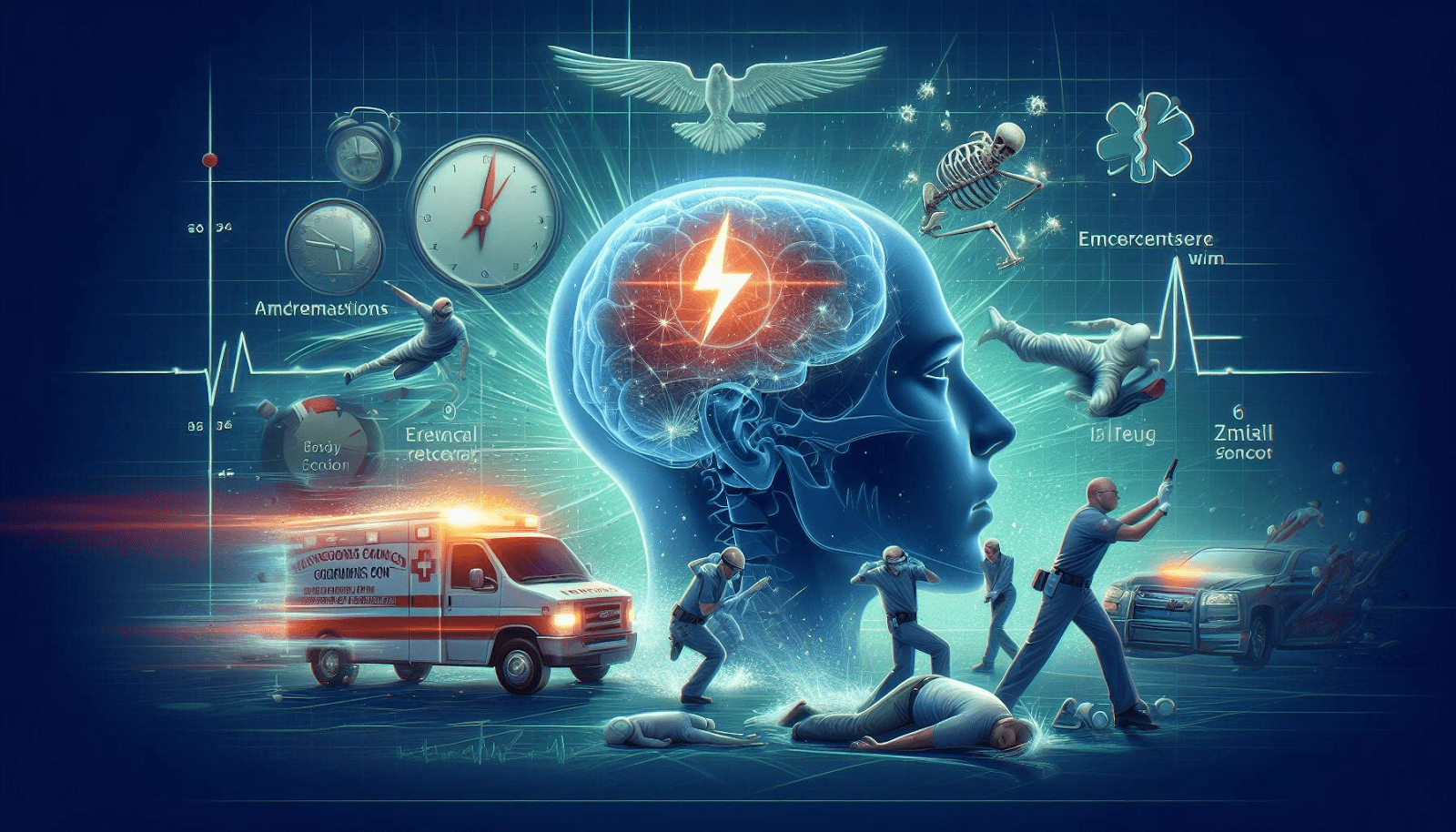When Every Second Counts: Understanding When a Head Injury Warrants an Immediate 911 Call

Head injuries, regardless of their severity, should never be taken lightly. The delicate nature of the human brain and its crucial role in regulating bodily functions make prompt and appropriate medical attention paramount. While some head injuries may seem minor, the potential consequences of delayed treatment can be severe and life-altering. In certain situations, calling 911 for emergency medical assistance is not just advisable – it’s an absolute necessity.
The decision to call 911 in the event of a head injury hinges on several critical factors, including the mechanism of injury, the presence of specific symptoms, and the individual’s medical history. By understanding these factors, individuals can make informed decisions and take appropriate action to ensure the best possible outcome.
Mechanism of Injury:
The mechanism by which a head injury occurs can provide valuable insights into its potential severity and the urgency of medical intervention required. Traumatic head injuries resulting from high-impact incidents, such as motor vehicle accidents, falls from significant heights, or violent assaults, should prompt an immediate 911 call.
These types of injuries, often referred to as traumatic brain injuries (TBIs), can cause severe damage to the brain tissue, leading to complications such as intracranial bleeding, skull fractures, and permanent neurological impairments. Even if the individual appears conscious and responsive initially, the potential for delayed symptoms or rapid deterioration necessitates prompt evaluation by emergency medical professionals.
Symptoms of Concern:
Certain symptoms following a head injury should be considered red flags, warranting an immediate call to 911. These symptoms may indicate potentially life-threatening conditions that require emergency medical intervention:
1. Loss of consciousness: Any period of unconsciousness, no matter how brief, is a clear sign of a serious head injury and should be treated as a medical emergency.
2. Persistent headache or worsening pain: Severe or worsening headaches can be indicative of intracranial bleeding or increased pressure on the brain, which can be life-threatening if left untreated.
3. Vomiting or nausea: Repeated vomiting, especially in conjunction with other symptoms, can signify increased intracranial pressure, a condition that requires immediate medical attention.
4. Seizures: Head injuries can sometimes trigger seizures, which can be a sign of significant brain trauma and require prompt medical evaluation.
5. Pupil abnormalities: Changes in pupil size or reactivity to light can indicate serious brain injuries and should be addressed immediately by medical professionals.
6. Slurred speech or confusion: These symptoms may indicate a disruption in brain function and could be signs of a more severe underlying injury.
7. Inability to move or feel a limb: Impaired motor function or sensation in the limbs can be a warning sign of a potential spinal cord injury or other serious neurological damage.
It’s important to note that some symptoms may not be immediately apparent, and delayed onset of symptoms can occur. In such cases, it’s crucial to remain vigilant and seek medical attention if any concerning symptoms develop, even hours or days after the initial injury.
Medical History and Risk Factors:
An individual’s medical history and risk factors can also play a role in determining the appropriate course of action following a head injury. Certain pre-existing conditions, such as bleeding disorders, use of blood thinners, or a history of previous head injuries, can increase the risk of complications and necessitate a more cautious approach.
For individuals with these risk factors, even a seemingly minor head injury may warrant an immediate 911 call and emergency medical evaluation. Healthcare providers can provide specific guidance based on an individual’s medical history and risk profile.
In addition to the factors mentioned above, there are certain situations where calling 911 is an absolute necessity, regardless of the apparent severity of the head injury. These include:
1. Injuries involving infants or young children: Due to the delicate nature of a developing brain, any head injury in infants or young children should be treated as a medical emergency, and 911 should be called immediately.
2. Injuries involving older adults: Older individuals may be more susceptible to complications from head injuries due to age-related factors, such as decreased brain plasticity and increased risk of bleeding. Prompt medical attention is crucial in these cases.
3. Injuries involving individuals with cognitive or communication impairments: Individuals with pre-existing cognitive or communication difficulties may have a harder time accurately conveying their symptoms, making it challenging to assess the severity of the injury. In these cases, it’s better to err on the side of caution and call 911.
While waiting for emergency medical services to arrive, it’s essential to follow basic first aid principles. This includes keeping the injured person still and comfortable, monitoring their level of consciousness and breathing, and avoiding the administration of food, drink, or medication unless explicitly instructed by medical professionals.
It’s crucial to remember that head injuries can be unpredictable, and their severity may not always be immediately apparent. Erring on the side of caution and seeking prompt medical attention can be the difference between a positive outcome and potentially life-altering consequences.
When it comes to head injuries, the adage “better safe than sorry” should always prevail. By understanding the warning signs, recognizing high-risk situations, and being proactive in seeking emergency medical assistance, individuals can increase their chances of receiving timely and appropriate treatment, ultimately improving the likelihood of a full and successful recovery.
In a world where seconds can mean the difference between life and death, the decision to call 911 in the event of a head injury should never be taken lightly. It’s a decision that could save a life, preserve neurological function, and ensure that the injured individual receives the best possible care and support during a critical time.
By raising awareness about the importance of prompt medical attention for head injuries and empowering individuals to recognize the signs and act accordingly, we can create a safer and more responsive environment for those who have suffered these potentially devastating injuries.
Justin Lian
View All By Justin






